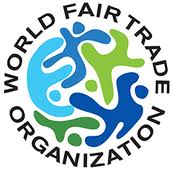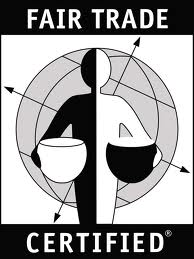I have always wanted to delve a bit deeper into the question of animal consciousness. The death of our dear cat Snowball a few weeks ago became the catalyst for it. We all know the relationship between brain size and depth of consciousness, awareness and intelligence. So it might seem that the larger the animal's brain, the deeper a relationship we can forge with it because of the animal's deeper awareness. I did not experience an animal relationship until we got Snowball, our first cat (I grew up in city apartments with fish and hamsters - no deep relationship there). He was white with a few well placed black spots, gentle and regal, and sociable to a point. Sometimes, he would jump up on the bed to snuggle, but he was not a lap cat.  A few years later we adopted Mieze as a companion for him, our little black very assertive female tuxedo cat. She talks a lot, while Snowball did not, she jumps on our laps, he did not, she'll wake us up in the morning by prancing around on the headboard and meowing by the side of the bed (not out of hunger, but for companionship). She is very sprite, quick, and playful, a perfect hunter (she even caught bats on two occasions they made their way into the house), he lost a lot of his playfulness over the years. I learned how individual animals' personalities are, and how they truly become a
A few years later we adopted Mieze as a companion for him, our little black very assertive female tuxedo cat. She talks a lot, while Snowball did not, she jumps on our laps, he did not, she'll wake us up in the morning by prancing around on the headboard and meowing by the side of the bed (not out of hunger, but for companionship). She is very sprite, quick, and playful, a perfect hunter (she even caught bats on two occasions they made their way into the house), he lost a lot of his playfulness over the years. I learned how individual animals' personalities are, and how they truly become a  beloved family member. Just like with my children, my nurturing gene kicked in, and I made sure the cats get the best holistic cat food and vet care and emotional nurturing.
beloved family member. Just like with my children, my nurturing gene kicked in, and I made sure the cats get the best holistic cat food and vet care and emotional nurturing.
Yet, René Descartes, the 17th century French philosopher, believed that animals were nothing more than mechanized, soulless, feelingless, rightless moving bodies we have dominion over - a prevailing understanding of his times. And you wonder about many still prevailing animal practices like dog and cock and bull fights, raising animals for fur, CAFOs (concentrated animal feeding operations), selective breeding food animals so abnormally that they cannot function anymore (chickens with breast so heavy they tip over, corn fed cows whose intestines scream because the diet is so unsuitable to their digestive systems, etc.). We have come a long way, though, thanks to animal rights groups and wake-up calls that happen spontaneously when we look an animal in the eyes and see a soul or consciousness staring back at us with meaning.
Coming to the end of reading Cat Body, Cat Mind by vet Dr. Michael Fox, who obviously has a deeply spiritual understanding of life, I regret not having shown our Mieze the dead body of her companion Snowball. Animals seem to understand the passing of close mates and companions, and need closure like we do.
Now we are working on integrating her new companion Peter Pepper into our household. Fox says that it is important for animals to have a like companion so they always remember who they are. We found Snowball on the side of the road when he was 4 or 5 weeks old, and we are not sure he ever totally understood how to act among cats. Maybe he was always a bit more human than cat.
I am still intrigued and would like to learn more about this collective animal consciousness I read about, that bees or cats or cows are not as individuated as us humans, and are more a fragment of a larger encompassing cat consciousness, or bee consciousness, or cow consciousness. It may shed some light on our own embeddedness in a larger collective human or universal consciousness, how inseparable we really are of the greater collective consciousness.
 On the material side the credit system has enabled us to buy now and pay later, since we choose no longer to be patient until we have saved up enough money. Besides houses and cars we can also get everything else instantly without paying for it upfront (just pay Amazon an annual fee and you'll get 2-day shipping on all your orders). We have lost our patience, we live on credit, and we are banking on a better future to acquire today’s perceived needs now.
On the material side the credit system has enabled us to buy now and pay later, since we choose no longer to be patient until we have saved up enough money. Besides houses and cars we can also get everything else instantly without paying for it upfront (just pay Amazon an annual fee and you'll get 2-day shipping on all your orders). We have lost our patience, we live on credit, and we are banking on a better future to acquire today’s perceived needs now.












